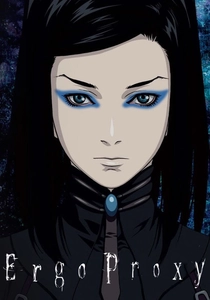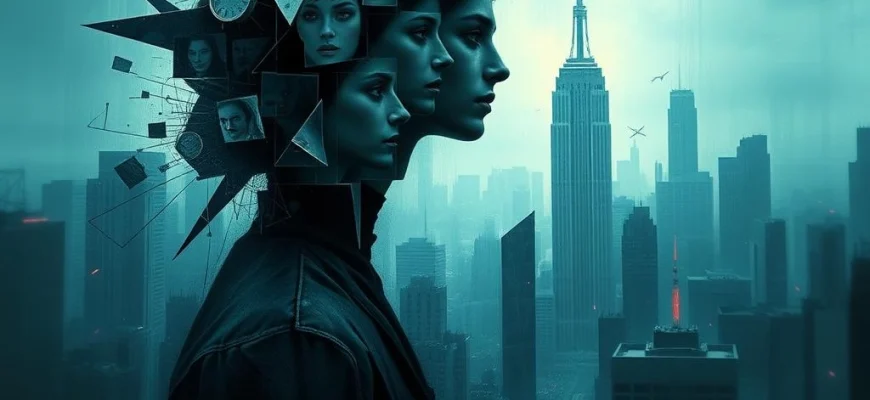If you're a fan of the psychological depth and surreal storytelling of 'Paranoia Agent' (2004), you'll love these 10 similar movies and shows. This article explores titles that share its themes of societal pressure, identity crises, and mind-bending narratives, perfect for those craving more thought-provoking entertainment.

Neon Genesis Evangelion (1995)
Description: A mecha series that delves deep into the psyches of its characters, exploring themes of depression, isolation, and human connection. Its psychological depth and surreal storytelling are similar to the referenced title's approach.
Fact: The series was initially intended to be a more traditional mecha anime but evolved into a deeply personal project for the creator. It has been interpreted as a critique of otaku culture.
 Watch Now
Watch Now 
Boogiepop Phantom (2000)
Description: A psychological thriller that weaves together multiple narratives, focusing on urban legends and the impact of trauma on individuals. Its non-linear storytelling and eerie atmosphere mirror the referenced title's approach to exploring human fears and societal pressures.
Fact: The series was originally intended to be a direct adaptation of the light novels but diverged to create an original story. It's known for its distinctive monochromatic color palette with occasional bursts of color.
 Watch Now
Watch Now 
Ghost in the Shell: Stand Alone Complex (2002)
Description: A cyberpunk series that questions the nature of identity and consciousness in a technologically advanced society. Its philosophical undertones and intricate plotlines echo the referenced title's focus on psychological and societal complexities.
Fact: The series' soundtrack was composed by Yoko Kanno, known for her work on Cowboy Bebop. It features a mix of orchestral and electronic music.
 Watch Now
Watch Now 
Haibane Renmei (2002)
Description: A serene yet deeply psychological series that explores themes of redemption, identity, and the afterlife. Its subtle storytelling and emotional depth are reminiscent of the referenced title's approach to character-driven narratives.
Fact: The series was originally conceived as a doujinshi (self-published work) by the creator. It features a minimalist soundtrack that enhances its melancholic atmosphere.
 Watch Now
Watch Now 
Mind Game (2004)
Description: A visually experimental film that blends multiple animation styles to tell a story about life, death, and self-discovery. Its surreal and unpredictable narrative mirrors the referenced title's unconventional storytelling.
Fact: The film was entirely hand-drawn, with each frame meticulously crafted to create its unique visual style. It was praised for its innovative use of animation techniques.
 Watch Now
Watch Now 
Ergo Proxy (2006)
Description: A cyberpunk series that delves into existential themes, identity, and the nature of consciousness. Its dark, philosophical tone and complex narrative structure are reminiscent of the referenced title's exploration of psychological and societal issues.
Fact: The series incorporates elements of French New Wave cinema and features references to classic literature and philosophy. Each episode title is a reference to a philosophical or psychological concept.
 Watch Now
Watch Now 
Paprika (2006)
Description: Explores the blurred lines between dreams and reality, featuring surreal visuals and psychological depth. The narrative delves into the human psyche, much like the referenced title, with a focus on how perceptions shape reality.
Fact: The film's dream sequences were inspired by the director's own dreams. It was one of the first anime films to be nominated for the Golden Lion at the Venice Film Festival.
 Watch Now
Watch Now 
Kaiba (2008)
Description: A sci-fi series that explores memory, identity, and love in a world where memories can be stored and transferred. Its dreamlike visuals and philosophical themes are similar to the referenced title's exploration of the human psyche.
Fact: The series' art style is inspired by 1960s manga and features a distinctive, minimalist design. It was created by the same director who later worked on The Tatami Galaxy.
 Watch Now
Watch Now 
Psycho-Pass (2012)
Description: A dystopian thriller that examines the morality of a society governed by a system that judges individuals' mental states. Its exploration of free will, justice, and psychological manipulation aligns closely with the referenced title's themes.
Fact: The series' concept was partially inspired by the works of Philip K. Dick. It features a unique scoring system that measures a person's likelihood to commit crimes.
 Watch Now
Watch Now 
Death Parade (2015)
Description: An anthology series that explores the human condition through psychological games played in the afterlife. Its focus on moral dilemmas and the darker aspects of human nature aligns with the referenced title's themes.
Fact: The series was inspired by a short film called Death Billiards, which was part of an anime project. It features a unique art style that blends realism with surreal elements.
 Watch Now
Watch Now 








